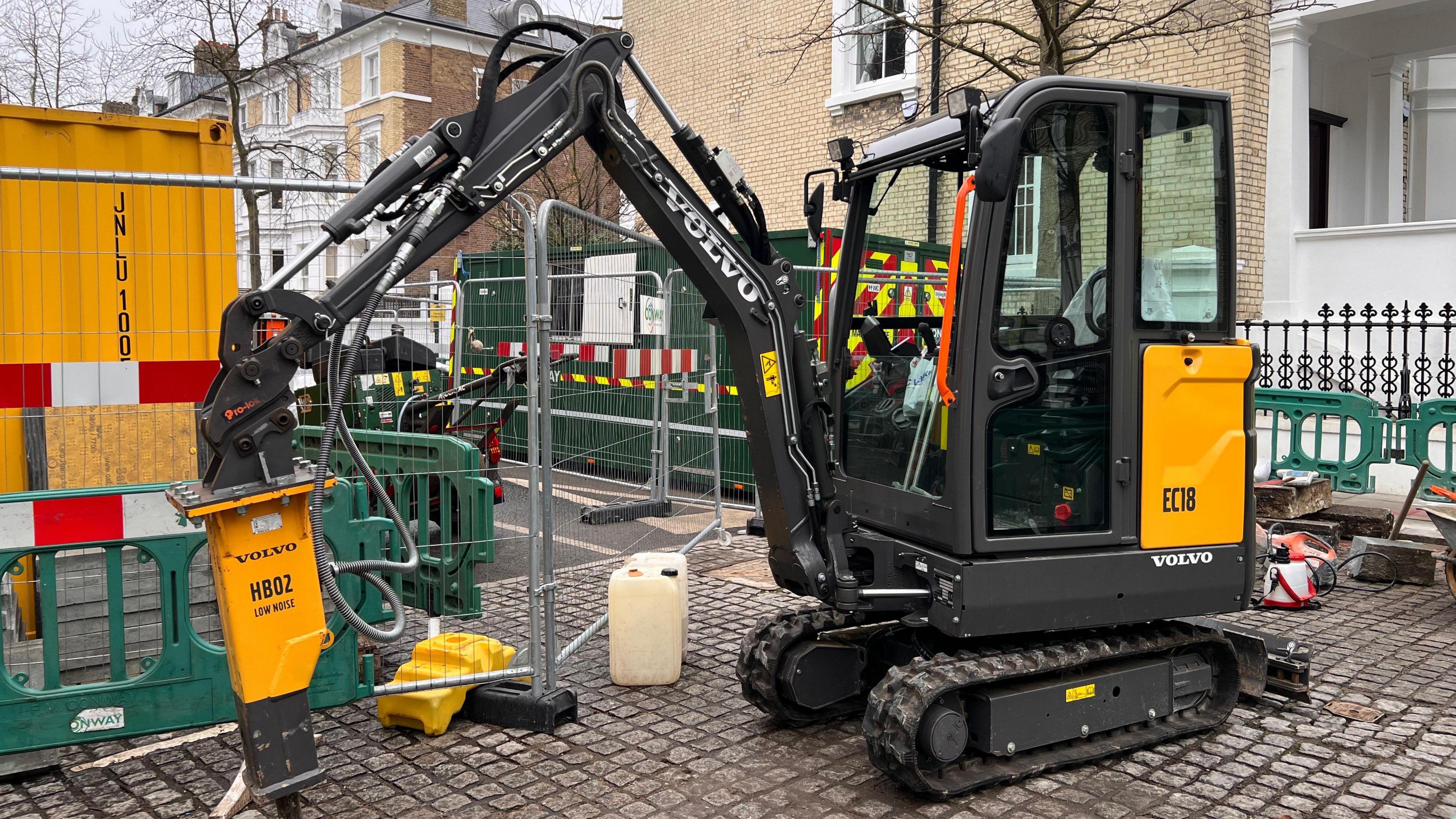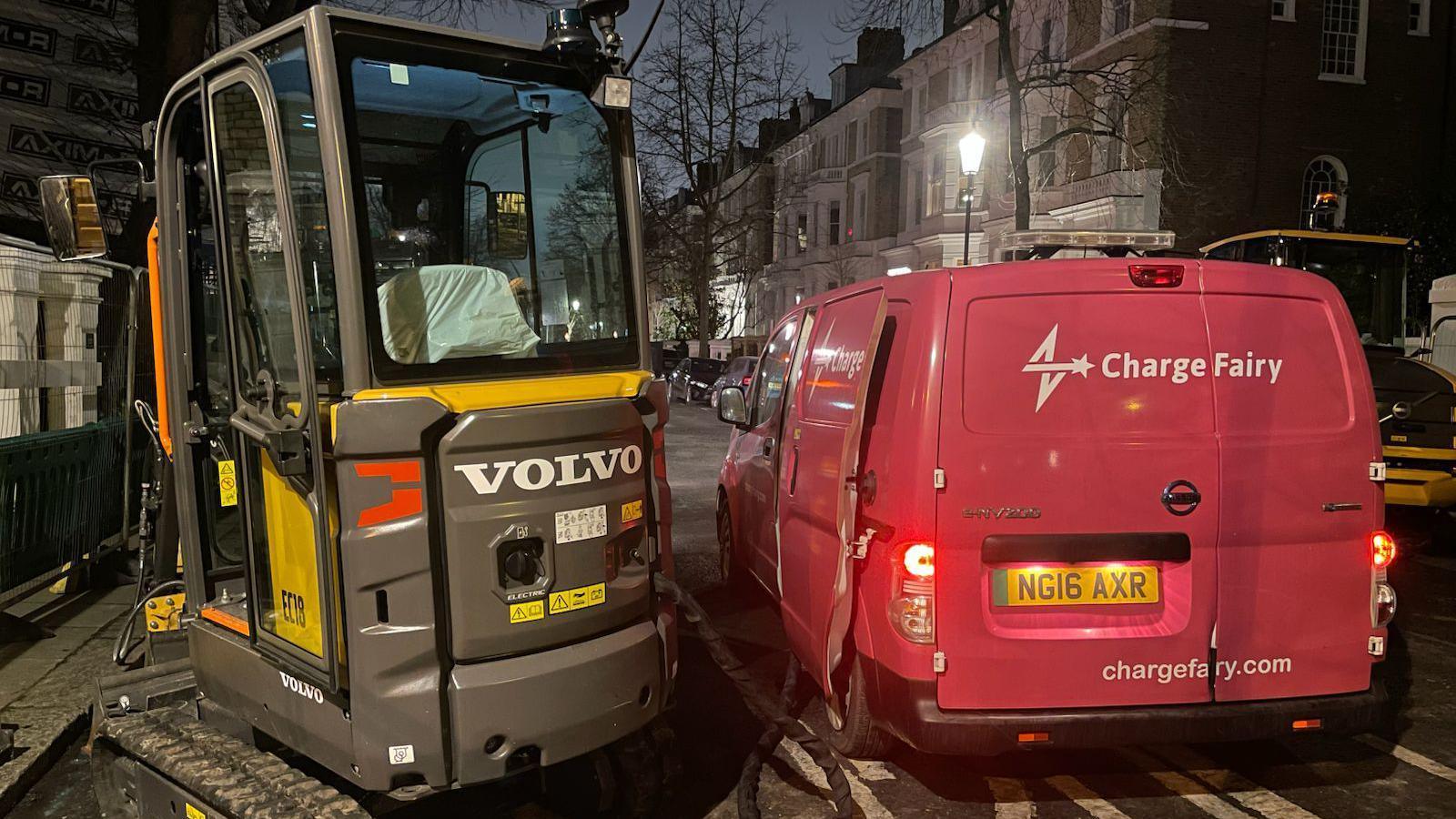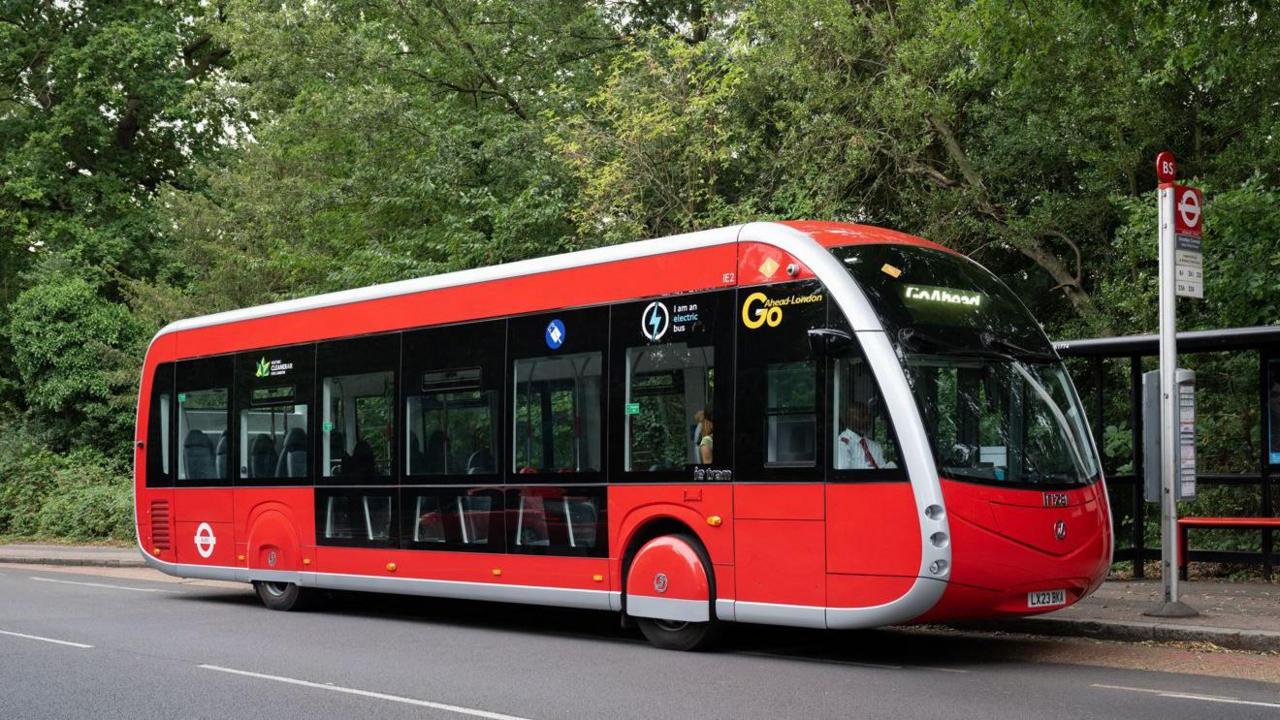TfL trial new way to cut construction vehicle emissions

TfL hopes this technology will help reach net zero carbon by 2030
- Published
Transport for London (TfL) is trialling zero emission construction vehicles for six weeks, involving what it calls a UK-first method of mobile recharging.
In a first for TfL, an electric excavator and wheel loader replaced equipment traditionally powered by fossil fuels in the trial that began on 13 January.
They are working with construction company FM Conway (FMC), Volvo Construction Equipment (Volvo CE) and SMT to deliver the trial.
TfL said it hopes these new advances in technology could play a "vital role" in reaching the mayor of London's target for London to be net zero carbon by 2030.

TfL says this charger allows construction machines to be recharged in an hour
The electric vehicles use a method of recharging provided by Charge Fairy, a British electric charging startup.
TfL said they are able to provide real-time updates on the machines' charging levels when on-site, which feeds into a team who can then send a charging van to the site.
It claims this method of bringing the charger to the vehicle allows the construction machines to be recharged in an hour.
The works on three junctions at Redcliffe Gardens in the Royal Borough of Kensington and Chelsea aim to improve pedestrian safety by creating raised sections of road that slow traffic, make crossings safer for pedestrians and improve bus stop accessibility by extending the pavement.
Early data from the trial found in a two-week period, the electric excavator saved more than 100kg of CO2, and according to the carbon footprint website Clever Carbon that is equivalent to driving a car 600km.
It also found additional harmful pollutants were eliminated when compared with a diesel excavator completing the same work.
'Overcome key challenges'
Carl Eddleston, TfL's director of network management and resilience, said: "The health of everybody in London is central to our work, and we are determined to meet our 2030 net zero targets.
"We are going to review the trial results and carry on exploring the best ways to decarbonise our network construction chain."
Mats Bredborg, from Volvo CE, explained smaller diesel construction machines are exempt from emissions controls.
He said: "This means they emit disproportionately high levels of harmful pollutants contributing to poor air quality and posing serious public health risks."
Ed Lea, founder of Charge Fairy, said: "Our work at Redcliffe Gardens demonstrated how intelligent energy delivery enables electric plant to operate for a full workday, overcoming one of the key challenges of construction electrification."
FMC's Matt Tallon said this charging solution removes many of the barriers they face in the use of electric plant machinery and it represents a "viable option for similar sites in future".
The works at Redcliffe Gardens will last until 28 March, with partial road closures during non-peak daytime hours and full road closures on Sunday, Monday, and Tuesday nights.
Listen to the best of BBC Radio London on Sounds and follow BBC London on Facebook, external, X, external and Instagram, external. Send your story ideas to hello.bbclondon@bbc.co.uk, external
Similar stories
- Published20 November 2024

- Published6 November 2024

- Published17 January
